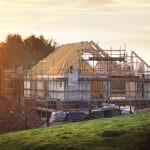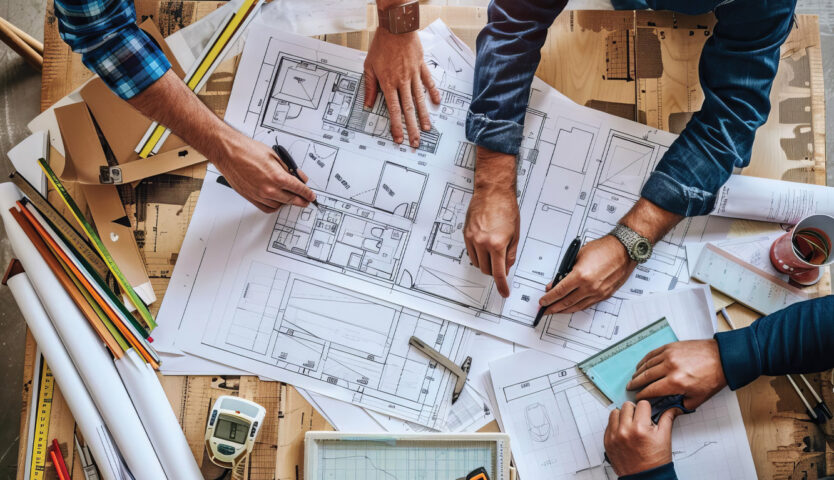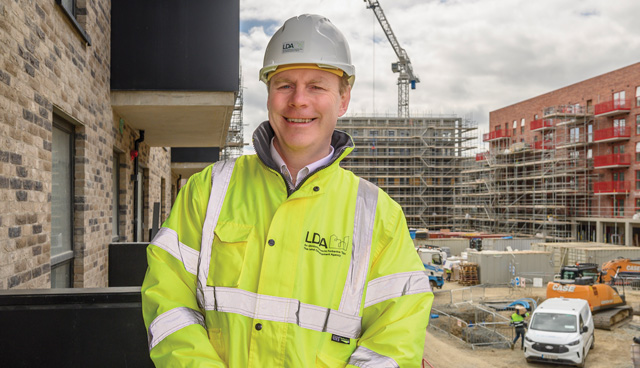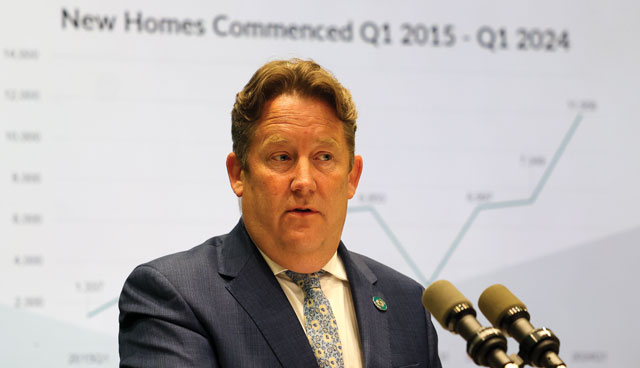
Government extends development levy waiver and Uisce Éireann rebate
3rd July 2024
A co-operative housing model fit for Ireland
3rd July 2024MMC: A modern solution to Ireland’s complex housing needs

A Housing Committe report on modern methods of construction (MMC) has found that MMC has the potential to address challenges such as meeting climate change targets, meeting the needs of a growing population, and helping to solve the housing crisis.
The report on modern methods of construction, published by the Committee on Housing, Local Government and Heritage in October 2023, states that current approaches to building design and construction “will not sufficiently address the urgent challenges of climate change, Ireland’s growing population and consequent housing crisis, as well as the added difficulties of labour shortages and gender imbalance in the construction sector”.
However, the report stipulates that low-carbon building technologies, such as MMC and timber, have the potential to address these challenges.
Capacity building for MMC
To build capacity for MMC, the report recommends that mandated targets are set to allow a minimum of public sector new builds to be built through low-carbon building technologies.
To enable this, the report asserts that multiannual framework agreements are created for companies’ building capacity for low-carbon building technologies including MMC and 3D volumetric building technologies, including the provision of seed capital, to create a pipeline and assist capacity for low-carbon building technologies including MMC and 3D volumetric building technologies in the construction industry.
For public sector leadership, the report recommends the establishment of a cross-departmental working group with industry participation is established on progressing the adoption of low-carbon building. The working group would appoint an independent chair, include public and private industry, adopt clear and specific terms of reference, and complete its work within an “appropriate timeframe”.
“Modern methods of construction will be the future of the industry, using technology and innovation to deliver badly needed homes quickly and at scale.”
Steven Matthews TD, Cathaoirleach, Committee for Housing, Local Government and Heritage
Overcoming regulatory challenges
The report recommends that the Technical Guidance Document B on Fire Safety (TGD B), which requires non-combustible construction materials in buildings taller than 10 metres, to be amended to “reflect modern developments in construction” and to “support the decarbonisation of the built environment”, with the aim of “removing barriers to adopting timber-based building technologies on a larger scale”.
Under the report’s recommendations, TGD B would be reviewed every two to three years to keep pace with changing technologies and to allow itself to be informed by evidence-based and innovative construction methods.
The report further recommends that a whole-life carbon assessment introduced as a requirement on all planning applications, and that building regulations are amended to regulate smoke toxicity levels in building materials.
The introduction of ministerial to local authority fire officers with the objective of allowing for construction of demonstrator buildings is among the report’s other recommendations for overcoming regulatory challenges.
Upskilling and training
With the objective of upskilling and training, the report recommends the development of further third level education and construction training and of public awareness of the opportunities that exist for low-carbon building technologies including MMC and 3D volumetric building technologies.
It further stipulates, in this context, that mandated targets should be set to allow a minimum of public sector new build houses to be built through low-carbon building technologies.
In exploring the topic of modern methods of construction, the Committee held three sessions, with two sessions focusing on modern construction methods, and one session involving discussion on the Review of Fire Safety Building Regulations. The Committee heard from a wide variety of stakeholders, including National Standards Authority of Ireland, Construction Industry Federation and Dublin Fire Brigade, among others.
Cathaoirleach of the Committee for Housing, Local Government and Heritage, Steven Matthews TD, said on publication of the report: “Modern methods of construction will be the future of the industry, using technology and innovation to deliver badly needed homes quickly and at scale.
“The Committee gained valuable and detailed insights into this topic from several witnesses, and as a result has made practical recommendations which aim to progress the use of these efficient building technologies.”






